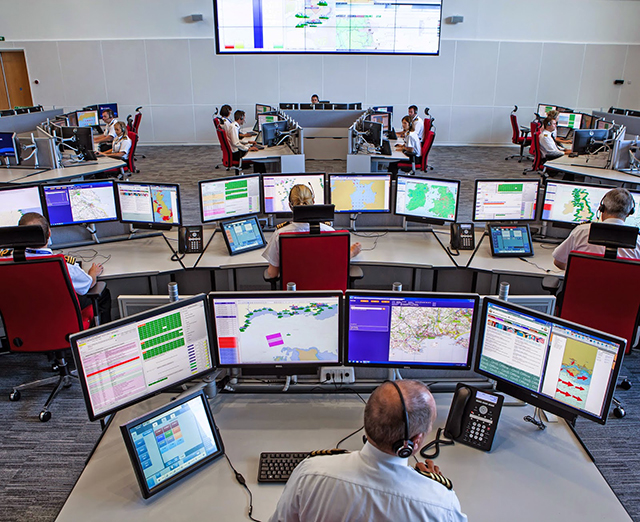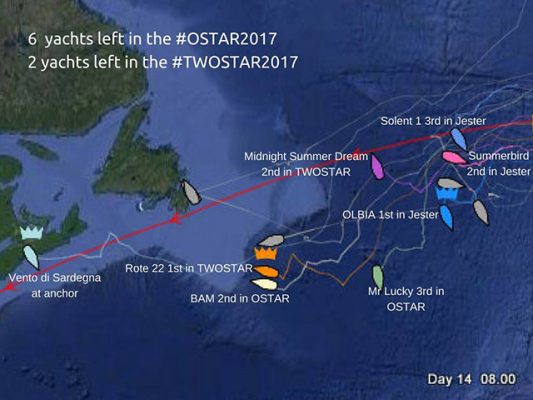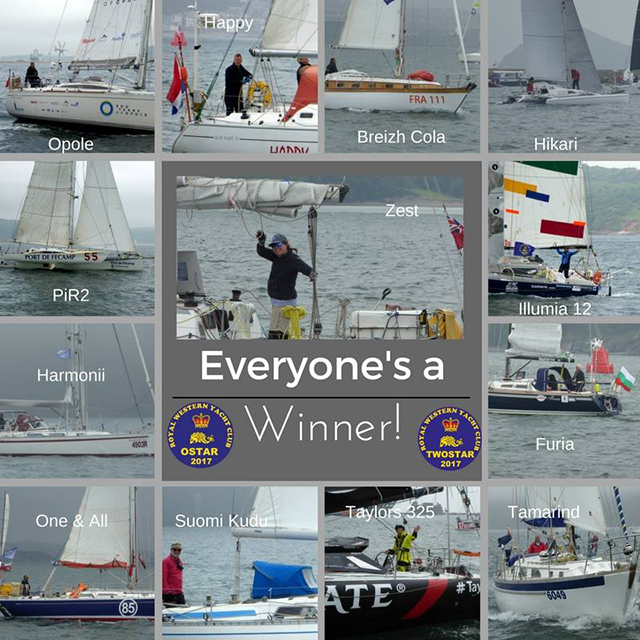Four yachts competing in the Original Singlehanded Transatlantic Race (OSTAR) and Twohanded Transatlantic Race (TwoSTAR) fleet have been rescued and others forced to retire from the race after a storm struck in the north Atlantic.
In the early hours of Friday 9 June, 60-knot winds and 15-metre seas were experienced by competitors of the OSTAR and TwoSTAR Fleet, caused by a very low depression (967 mb).
These extreme conditions caused damage to many boats with three emergency beacons (EPIRB) triggered. The Canadian coastguard in Halifax immediately reacted to the situation sending ships and air support to all the boats in distress.
The boats affected are:
TAMARIND – Suffered severe damage. Skipper well with no injuries. Rescued by Queen Mary en route to Halifax.
HAPPY – Dismasted. Both crew rescued by ocean going tug APL FORWARD. No injuries reported.
FURIA – Boat sunk. Crew rescued by survey vessel THOR MAGNA. No injuries reported.
HARMONII – Mainsail and track damage. Retired. Heading under engine for the Azores. Skipper ok, no injuries.
SUOMI KUDU – Mainsail problems. Retired. Heading back to UK. Skipper ok, no injuries.
In another update, race organisers the Royal Western Yacht Club (RWYC) reported that Italian Ostar skipper Michele Zambelli on yacht ILLUMIA had triggered his EPIRB at 0400UHT after encountering keel problems. Immediate action was taken by Halifax CG which resulted in him being picked up by a Canadian Air Force helicopter, Rescue 911, at 1000UHT, just six hours after the rescue was initiated. The skipper incurred no injuries and is now in St John’s.
ZEST sailed by American-born Londoner Kass Schmitt has also retired from the race.
The 13 yachts which have retired from the OSTAR and TWOSTAR 2017 race. Credit: Heidi Frith, SPC Marine Marketing
A RWYC spokesman said: ‘The remaining boats in the fleet are all safe and well, continuing their passage to Newport. The Atlantic swell in the area has moderated to 5 metres.
‘The first boat is expected in Newport on Wednesday, 14 June. Vento Di Sardegna is skippered by Italian Andrea Mura who won the last Ostar in 2013.
‘The RWYC would like to thank all personnel at the Halifax Coastguard for their immediate and magnificent response to this emergency situation. All seafarers owe them a debt of gratitude.’
The OSTAR and TwoSTAR fleet left Plymouth on 29 May 2017 bound for Newport, Rhode Island. The transatlantic races are open to mono and multi-hulls between 27 and 60ft in length.
The 2017 edition of the race has been exceptionally tough, even compared to normal OSTAR standards: Six of the 21 boats that left Plymouth in the two combined fleets retired in the first week due to bad weather, well before the storm struck.
The UK Coastguard reported that they assisted the Joint Rescue Coordination Centre (JRCC) in Halifax, Canada, after a British yachtsman sent an emergency beacon alert at approximately 4 am on 9 June, which was picked up by the UK Coastguard.
The UK Coastguard provided assistance to JRCC Halifax as they coordinated search and rescue assets within the area, responding to the distress call.

Earlier on 10 June, JRCC Halifax requested air support and the RAF’s C-130 Hercules aircraft was requested through the UK Aeronautical Rescue Coordination Centre (ARCC). The UK Coastguard also contacted the Queen Mary 2 cruise liner to ask for assistance, who diverted their course and headed to the scene.
The Queen Mary 2 arrived on location at approximately 1pm and launched their fast rescue craft to recover the man and take him on board. He has been assessed by the Queen Mary 2 medical team who have advised he is uninjured and in good spirits.
Daniel Bailey, maritime operations officer for the UK Coastguard said: ‘This is a great example of multi-agency working within the International search and rescue community. We were in constant contact with our counterparts in Canada, as well as liaising with the UK Aeronautical Rescue Co-ordination Centre, and the UK Mission Control Centre, who received the emergency beacon alerts throughout the night. We are extremely grateful for the support and professionalism that the RMS Queen Mary 2 provided during this rescue.’
Neil Blewett, aeronautical operations controller for the UK ARCC said: ‘Assisting the Canadian air response the UK ARCC, in close liaison with the Royal Air Force, successfully sought the support of a C-130 Hercules aircraft to provide top cover over the stricken yacht. Following detailed briefings from Canadian and ARCC personnel, the RAF were on scene as the QM2 arrived to effect rescue.’





